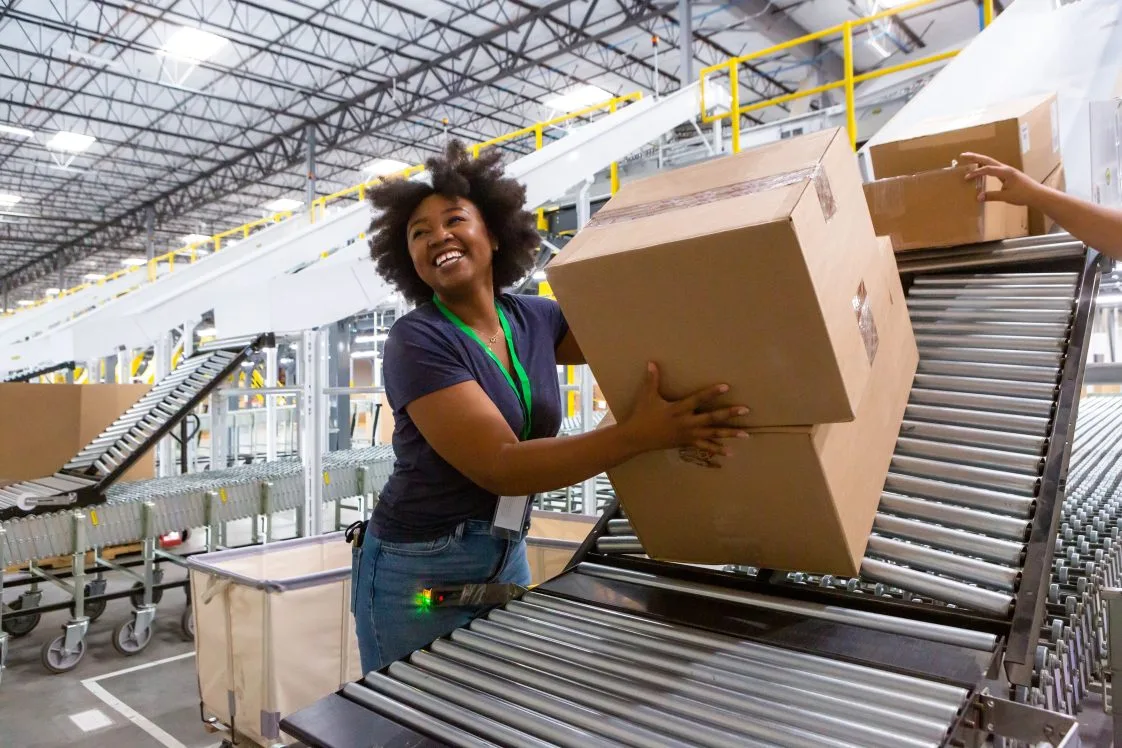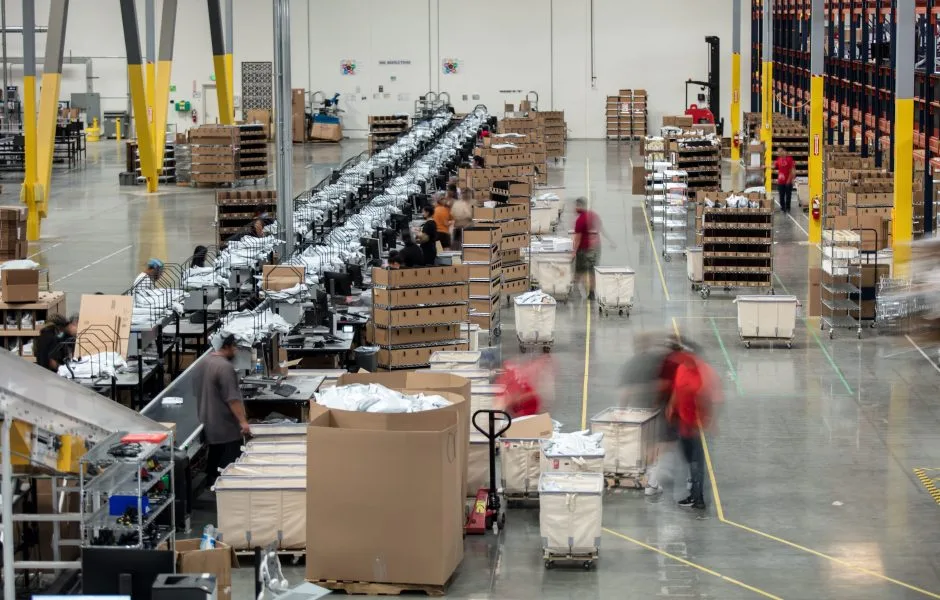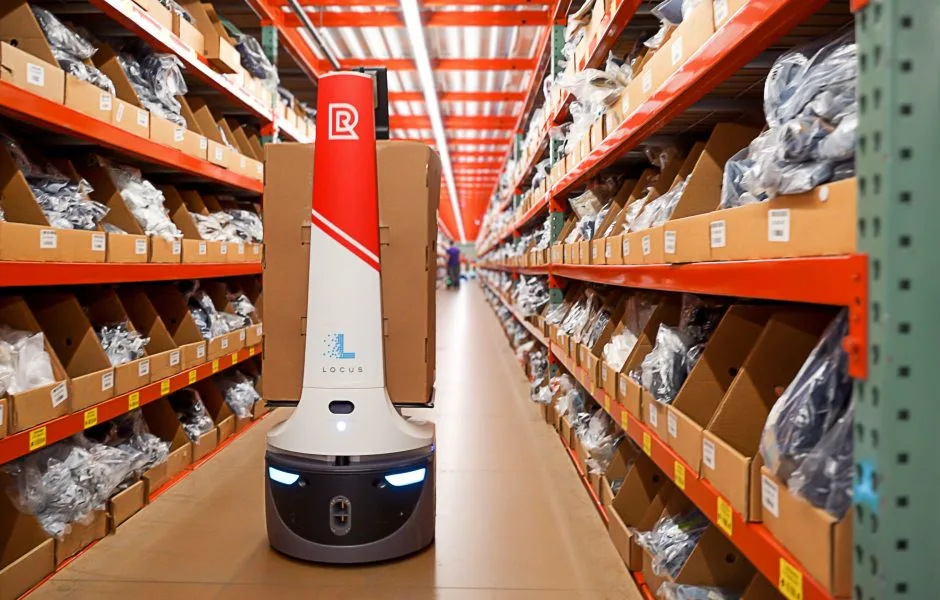How to Choose the Right Shopify eCommerce Fulfillment Partner
Learn how to optimize your eCommerce fulfillment with Shopify and select the best Shopify eCommerce fulfillment partner, from dropshipping to a 3PL.
Now is a good time to win customers and drive sales online. The 2024 holiday season will see eCommerce sales grow at fastest rates since 2021, according to EMARKETER. Both emerging and long-standing brands are seeking new ways to set up eCommerce webstores. Many choose Shopify fulfillment to drive eCommerce success.
The 2024 holiday season will see eCommerce sales grow at fastest rates since 2021. eCommerce sales will account for 19.8% of total sales, the largest increase since 2020.
How Shopify Drives eCommerce Success
Millions of eCommerce merchants leverage Shopify’s full-service eCommerce platform. Shopify provides the technology merchants need to build online stores, market to potential customers, sell products, and accept payments. The platform connects sellers to online marketplaces like Amazon, Walmart, and eBay, as well as via social media, search, and through emerging channels like TikTok Shop. But there is a challenge any eCommerce merchant must tackle to succeed: eCommerce fulfillment.
What is eCommerce Fulfillment?
eCommerce fulfillment is the process of receiving, processing, packaging, and delivering online orders to customers. It encompasses everything from order management, inventory management, warehousing, packaging, shipping, and returns (also known as reverse logistics).
All growing eCommerce merchants need to tackle an eCommerce fulfillment strategy to fulfill customer expectations and grow revenue successfully. A fulfillment strategy aims to ensure customers receive their orders accurately and promptly while maintaining efficiency and cost-effectiveness.
From order processing to inventory management and warehousing to shipping and returns management, every step of the fulfillment process plays a pivotal role in delivering a seamless customer experience. Here are just a few reasons why brands need to define a strong fulfillment strategy to grow and scale:
- Customer Satisfaction: Online stores need efficient fulfillment to ensure orders are processed accurately and delivered in a timely manner. The faster you ship orders, the happier customers will be. And satisfied customers buy more. Growing eCommerce businesses generate 35% of revenue from the top 5% of loyal, repeat customers. Higher levels of customer service result in repeat purchases, customer loyalty, and positive reviews.
- Scalability and Growth: A well-designed fulfillment process enables businesses to handle increasing order volumes, inventory management, picking and packing services, and delivery without sacrificing efficiency. As online sales grow, efficient fulfillment can accommodate higher order volumes, ensuring businesses can scale their operations and effectively meet customer demand.
- Positive Brand Image: More than 62% of customers go out of their way to buy from favorite brands. Providing fast, accurate, and reliable fulfillment contributes to a positive brand image. When customers have a smooth and satisfying experience with order fulfillment, they are more likely to view the brand favorably, recommend it to others, and become loyal customers.
- Cost Savings: Minimizing errors means fewer expenses are associated with returns, replacements, and customer support. Additionally, streamlined processes reduce labor costs and improve overall operational efficiency.
The First Step: Pick an eCommerce Fulfillment Strategy
The first step for growing online brands: understand how you intend to fulfill online orders before launching on Shopify. Consider the packaging, technology, warehousing or other storage, transportation requirements, international shipping, and much more required to fulfill orders successfully. Answer these three questions:
- Will you fulfill orders yourself?
- Will you work with Shopify’s fulfillment solution?
- Will you work with other logistics providers?
There’s good news: you have options—from Shopify eCommerce fulfillment to third-party logistics providers (3PLs).
The Shopify Fulfillment Network (SFN)
Shopify helps both emerging and enterprise eCommerce merchants manage their eCommerce by outsourcing eCommerce fulfillment to Shopify’s fulfillment service, Shopify Fulfillment Network (SFN). The Shopify Fulfillment network is a network of Shopify warehouses designed for order management, inventory management and order fulfillment on behalf of Shopify merchants.
The SFN provides Shopify order fulfillment services brands can use to store inventory and manage orders. Shopify leverages a network of Shopify warehouses and fulfillment centers in the US. It also works with UPS, DHL, USPS, and other shippers to deliver orders. To use the Shopify Fulfillment Network, eCommerce merchants must sell in the US, have an active Shopify Payments account, and meet Shopify’s other eligibility parameters.
Shopify’s fulfillment solution may not be for every eCommerce retailer. Many leading eCommerce brands instead leverage dropshipping, in-house fulfillment, or third-party logistics providers to drive growth and reduce costs.
Dropshipping
Dropshipping is a fulfillment model where the eCommerce business doesn’t hold inventory or handle product fulfillment directly. When a customer places an order, the business forwards the order details to a supplier or manufacturer, who then ships the products directly to the customer.
The eCommerce business acts as an intermediary, taking orders and payments from customers and passing on the order information to the supplier for fulfillment. Dropshipping eliminates the need for inventory management and upfront investment in stock. Merchants instead focus on marketing, customer acquisition, and building their online presence.
There are potential drawbacks. Dropshipping may result in less control over product availability, shipping times, and customer experience, as these aspects are managed by the supplier.

In-House Fulfillment
With an in-house fulfillment model, also known as merchant fulfillment, the Shopify merchant handles all aspects of the fulfillment process internally. That includes warehousing, inventory management, order processing, picking, packing, kitting or gift wrapping, shipping, and returns.
The business maintains its own fulfillment centers or warehouses to store inventory, and the entire fulfillment process is managed by the merchant’s own staff.
In-house fulfillment provides large and small businesses with greater control over the fulfillment process and allows for more customization and flexibility. But it requires significant infrastructure, resources, and expertise to effectively manage order fulfillment operations.
Third-Party Logistics Partners (3PLs)
Many growing eCommerce retailers outsource fulfillment to third-party logistics partners (3PLs). 3PLs are specialized fulfillment companies that manage warehousing, inventory storage, order processing, kitting or gift wrapping, shipping, and returns on behalf of merchants.
The 3PL provider typically has expertise in fulfillment operations, established warehousing infrastructure, and advanced systems to handle the entire process efficiently. This model allows businesses to focus on core activities such as marketing and product development, while relying on the expertise of the 3PL provider for an efficient order fulfillment process. It offers scalability, reduces operational costs, and provides access to specialized fulfillment services.
Other ways 3PLs make eCommerce fulfillment simple, scalable, and customizable for Shopify merchants:
- Automation: Utilize software and tools for order processing, inventory management, and shipping label generation. Automation can significantly improve fulfillment efficiency.
- Streamlined Order Processing: Simplify and automate the order processing workflow. Utilize order management systems to centralize order data, integrate payment gateways for seamless payment processing, and implement fraud detection measures to minimize risks.
- Inventory Management: Implement inventory management software to track stock levels, set up automatic reordering, and conduct regular audits. Embrace real-time inventory tracking to prevent stockouts and ensure seamless order fulfillment.
- Packaging and Shipping: Optimize packaging processes to ensure efficiency and protect products during transit. Utilize standardized packaging materials, implement automated packaging systems, and work closely with shipping carriers to negotiate favorable rates and expedite deliveries.
- Customization and Gifting: Leverage Value-added services, like gift wrapping and customization. These services provide added value to customers, improve the overall shopping experience, and differentiate an eCommerce business from its competitors.
- Returns and Reverse Logistics: Manage customer returns via reverse logistics policies and processes. Forty-nine percent of retailers considered returns to be a severe issue in 2024. Good returns processes require creating clear return policies, providing return labels or instructions, inspecting returned products, and determining appropriate actions based on the condition of the items.
The best fulfillment services or best 3PL provider for Shopify may vary based on a variety of factors, but specialized logistics partners can make growing eCommerce on Shopify simpler—from the shopping cart to order delivery.

How Radial Works as an Outsourced 3PL for Shopify Webstores
Radial is a trusted partner for Shopify merchants seeking to grow their eCommerce businesses quickly, efficiently, and profitably. We offer tailored and scalable eCommerce fulfillment for emerging and enterprise brands—from click to delivery. Shopify merchants meet their fulfillment promises, and customer expectations, while reducing overhead and boosting profitability.
With fulfillment centers across the globe, Radial helps Shopify merchants:
- Grow Fast Through Seasonal Peaks: Manage surges in demand efficiently without compromising service quality. Adapt your processes, technology, and workforce seamlessly to meet fluctuating demand.
- Balance Profitability, Efficiency, and Brand Experience: Manage costs and drive efficiency, without losing what makes your brand special. Maintain a delicate balance with strategic support from a trusted 3PL partner.
- Leverage Real-Time Analytics: Turn data into actionable insights to optimize your fulfillment strategy.
- Ensure Reliable Carrier Partnerships: Ensure timely deliveries with strong carrier relationships negotiated by Radial.
- Deliver to Customers Fast: Strategically position inventory near where your customers live to speed delivery times and reduce transportation costs.
- Tailor Brand Experiences: Create tailored brand experiences with product personalization, gift wrapping, and other value-added services.
- Manage Returns Effectively: Handle returns efficiently to minimize costs and maintain a positive customer experience.
The Radial Difference for Shopify eCommerce Fulfillment
Global brands have trusted Radial for 40+ years to help them deliver a distinctive consumer experience through tailored, personalized, and scalable solutions. We partner with clients across Europe and North America with technologies such as advanced eCommerce fulfillment omnichannel order management, as well as payment and fraud management.
Delivering brand promises is simple with Radial and Shopify fulfillment. With our Shopify certification and Radial Fulfillment App, Radial leverages an in-depth platform understanding and offers expert insights. Plus, our access to Shopify’s resources ensures Radial stands as a prime choice for eCommerce businesses seeking to enhance their logistics and fulfillment.
The Radial Fulfillment App automatically integrates Shopify webstores with Radial Systems through APIs. Once integrated, Radial will be able to pull the orders from the webstore and ship them to customers. Radial updates the order status on webstore with tracking information as soon as orders are shipped.
Partner with Radial to leverage deep industry expertise, extensive market reach, and the innovative approach necessary to drive seamless eCommerce fulfillment. Learn more about how Radial helps Shopify merchants succeed with tailored approaches to eCommerce and beyond—from click to delivery.
Learn how Radial can help you with eCommerce fulfillment.
